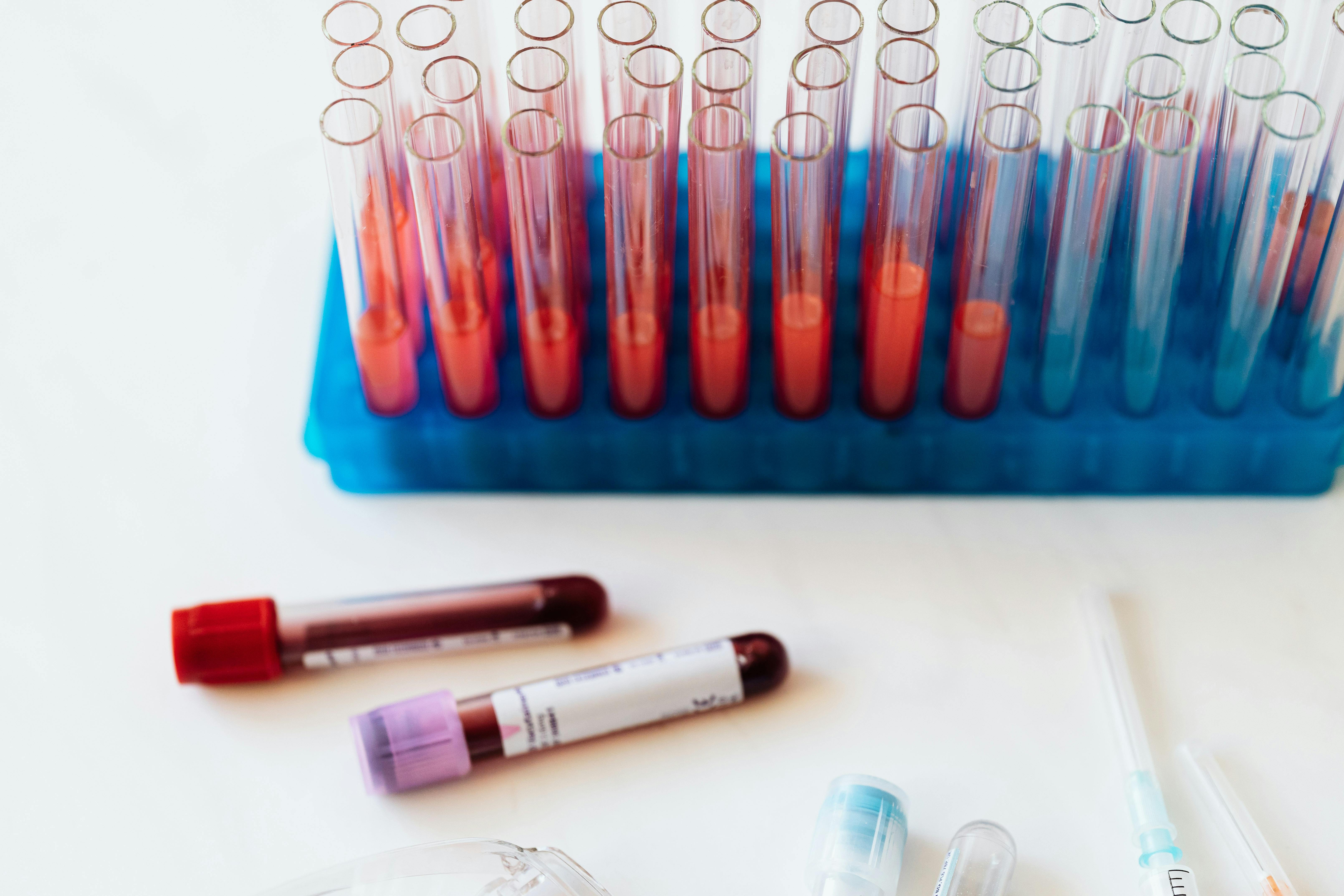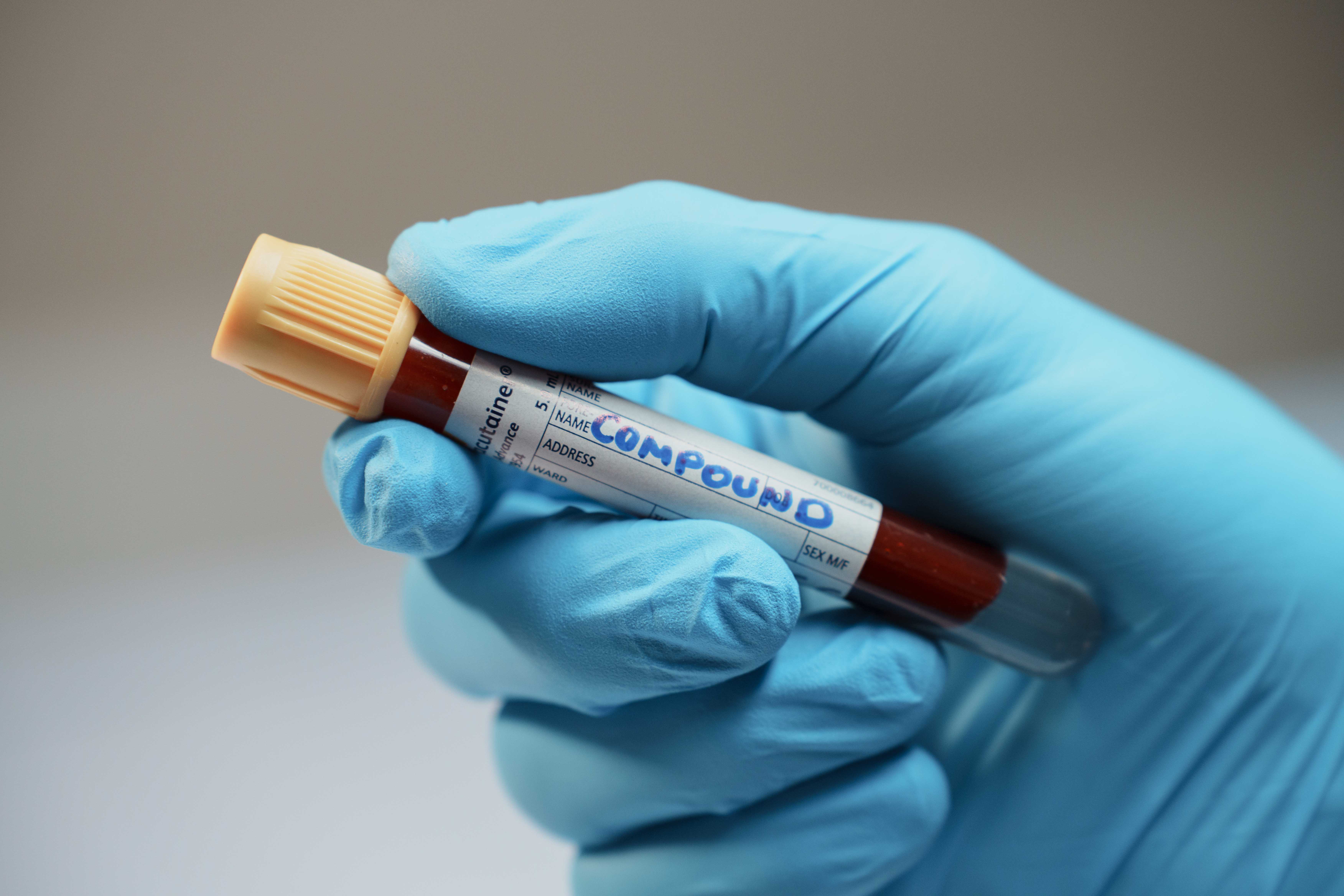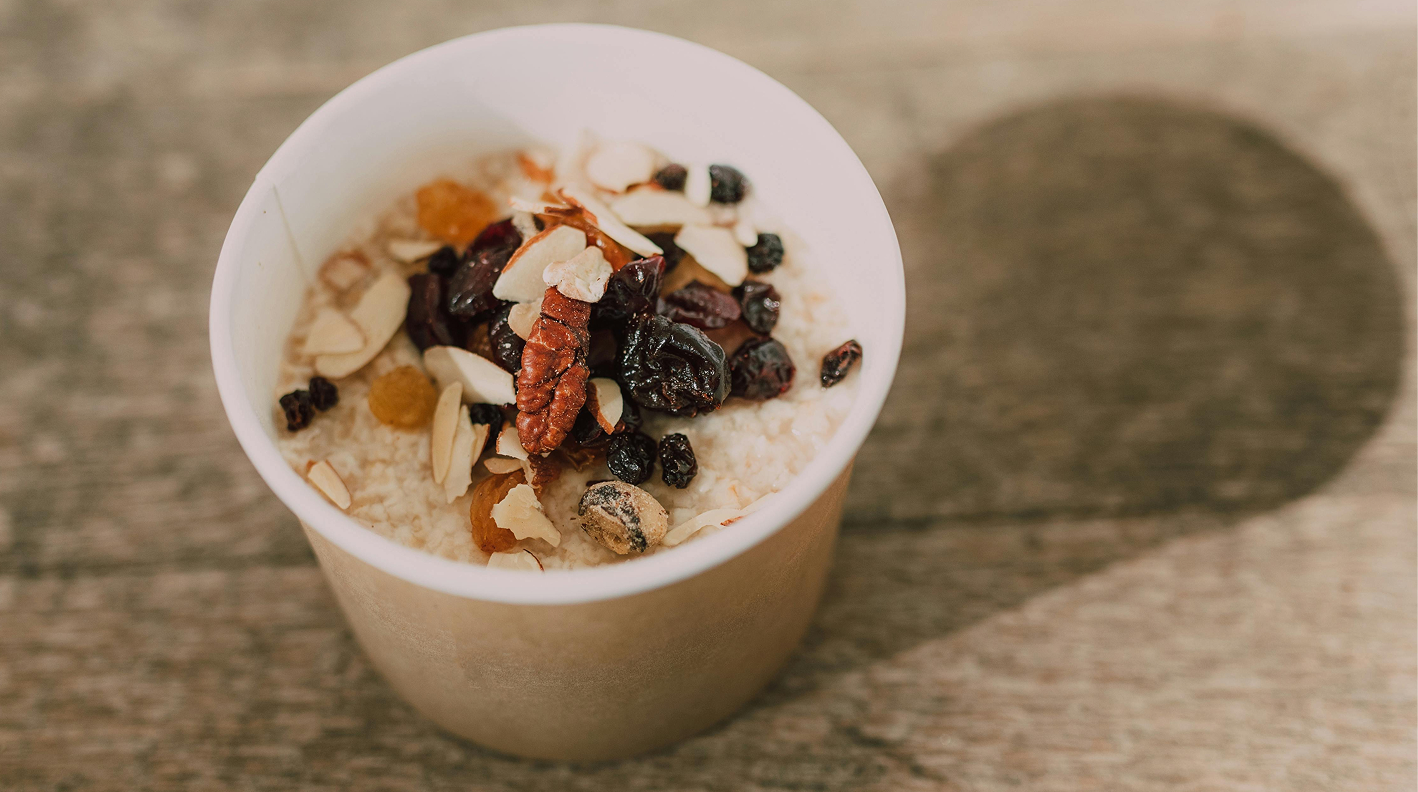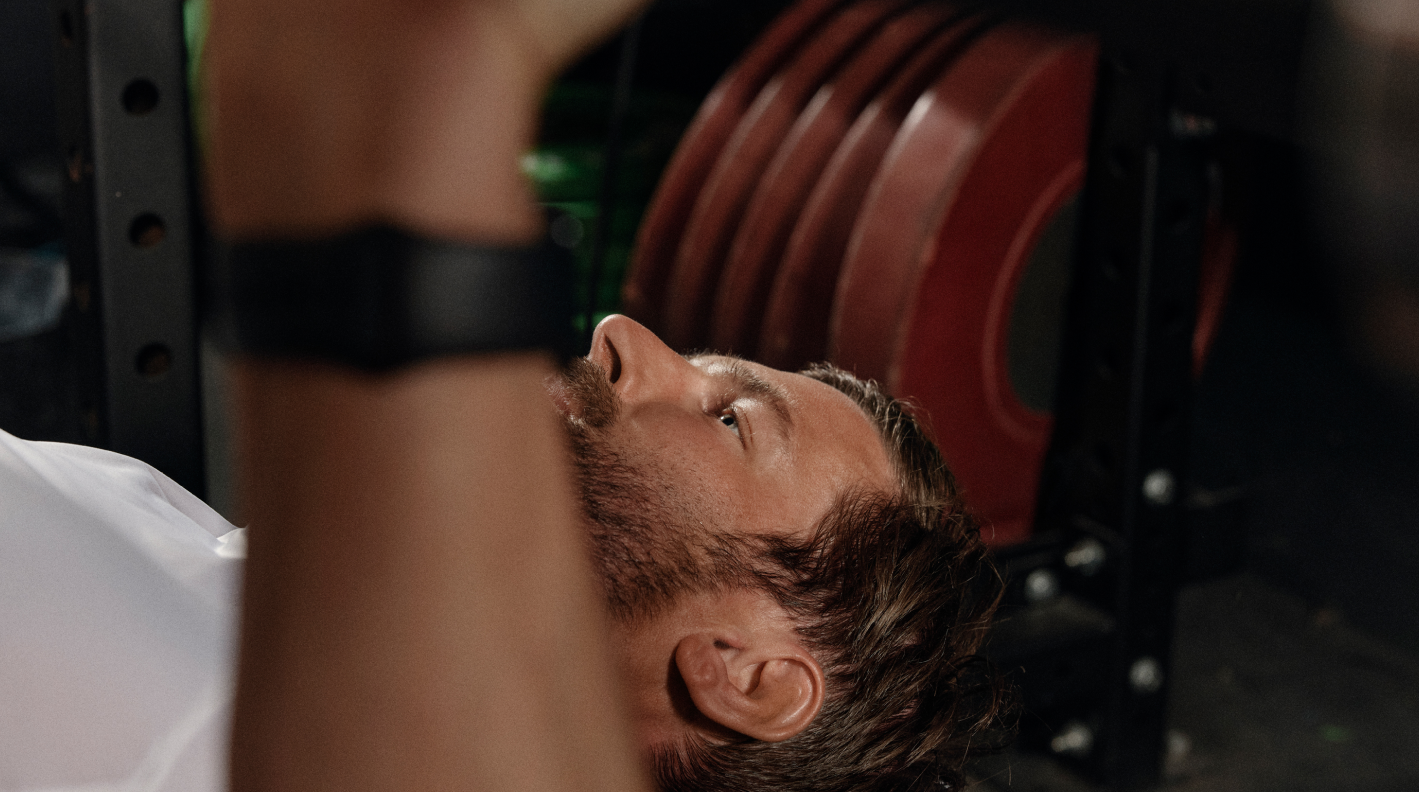HbA1c testing: Monitoring your blood sugar levels for optimal health

Key takeaways
- HbA1c measures average blood sugar over 3–4 months, providing a key insight into long-term glucose control and overall metabolic health — not just diabetes risk.
- Elevated HbA1c is linked to inflammation, reduced testosterone, and poorer cardiovascular performance, while lower levels correlate with better endurance and VO₂ max.
- Compound uses HbA1c testing alongside diagnostics, nutrition, and training programs to personalise strategies that optimise energy, performance, and long-term health.
Knowledge is power, especially when it comes to your health, and few metrics are as valuable as HbA1c. While it's often associated with the management of diabetes, the importance of HbA1c extends far beyond, offering insights into your metabolic health and in turn, ways to improve your overall health and performance.
So, whether you're an elite athlete or an everyday man with an enthusiasm for health, understanding and monitoring your HbA1c can be the key to unlocking your full potential.
What does HbA1c mean?
Haemoglobin (HbA) is a crucial protein found in red blood cells. It contains iron and has the important job of carrying oxygen around your body [1]. Around 6% of your haemoglobin is glycated — in other words, 6% of the haemoglobin in your red blood cells is attached to glucose.
HbA1c refers to that 6% of your glycated haemoglobin.
As your red blood cells live for only about four months — or 120 days — your HbA1c gives doctors an indication of how much sugar has been in your blood for that window of time. In other words, your HbA1c is a surrogate marker of your shifting blood sugar levels over a few months [3].
While high HbA1c values are a diagnostic benchmark for diabetes, they can also be indicative of insulin resistance and poor glucose control, which is linked to many metabolic disorders and can contribute to a decline in physical performance.
What is the normal HbA1c level by age?
While it’s understood that both age and gender play a role in a normal HbA1c level and your average blood sugar levels, that difference is considered pretty minimal, and a result under 5.7% is considered to be the normal range for both men and women of all ages [4].
What is a hemoglobin A1c test?
A haemoglobin A1c test, also known as the HbA1c test, is a type of blood test traditionally used to diagnose diabetes and monitor blood glucose control in people with diabetes [1].
The test is conducted like any blood test where a nurse will take a blood sample to send away for testing. This test measures your blood glucose levels over months [2].
The test has been the standard for assessing glycaemic control in diabetic people since the American Diabetes Association (ADA) recommended its use in 1988, making it a tried and tested diagnostic tool [3].
In 2011, Australia introduced the mmol mol system of measurement which stands for millimoles per mole. It's a standardised scientific unit used to measure chemicals, including glucose levels, which was developed by the International Federation of Clinical Chemistry [2].
While the traditional use of an HbA1c test involves diagnosing and managing diabetes, this test can also be used in a preventative healthcare setting. Chronically elevated blood sugar levels are bad for your metabolic health, and cardiovascular health and can play a role in decreased testosterone, trigger inflammation and cause weight gain [7][8].
By monitoring your blood sugar, you have the data to ensure you manage these levels correctly.
Why would I need a HbA1c test?
In a traditional healthcare setting, a doctor may ask for a HbA1c test if they suspect you may have diabetes, or are prediabetic [2]. It can also be used for glucose monitoring in diabetics, people suffering from renal failure, and patients with unexplained discrepancies between HbA1c and glucose readings [3].
In the world of preventative healthcare, this test can be used as part of a comprehensive diagnostic toolkit.
This is where Compound comes in — we use clinical biomarkers combined with behavioural observations of what you are eating, in conjunction with body composition metrics like visceral fat to get a view on your metabolic health.
From here, our specialists can make personalised recommendations on how best to approach your eating and exercise to keep your HbA1c at a healthy level.
What is Compound, exactly? Well, we're a digital clinic for performance health. Once the exclusive domain of billionaires and Hollywood stars, we're on a mission to make premium concierge care accessible to every man who wants more.
We take a multi-disciplinary approach to health optimisation and preventative care to help men unlock barriers to everyday performance.

Do you need to prepare for a HbA1c test?
No preparation is needed for a HbA1c test, making it an accessible form of testing that can be conducted at any time of day [1].
HbA1c testing: Athletes versus the everyday man
While HbA1c is important for those with diabetes, it's also often monitored by athletes as it can impact their performance. How? Well, for starters, maintaining blood sugar levels helps ensure a steady supply of fuel to muscles while exercising — if these levels fluctuate, it can impair recovery and lead to fatigue.
Plus, reduced HbA1c levels are often associated with enhanced VO2 max, which means better endurance and stamina.
On the flip side, for the everyday health enthusiast, keeping your HbA1c levels low helps to reduce the risk of developing diabetes and cardiovascular diseases. Monitoring these levels also helps you track how effective your diet and exercise choices are.
What happens if HbA1c is high?
Traditionally, if your HbA1c levels are over 6.5% (48 mmol mol), your doctor will likely conduct further blood tests and an oral glucose tolerance test.
If those come back with similar results, your doctor will diagnose you with diabetes and place you on a diabetes treatment plan. This plan will depend on a range of factors including the type of diabetes you have, how long you’ve had it, and your health in general [1].
If left untreated, high blood glucose levels and diabetes mellitus can develop serious complications, in no small part because diabetes complications can cause serious harm to the body's organs. Long-term effects include damage to both macro and micro blood vessels which can lead to heart attack, stroke, digestive and kidney diseases, and damage to the eyes, gums, feet and nerves [5].
What is the fastest way to reduce HbA1c?
If you have a high HbA1c or are at risk of developing diabetes, there are several steps you can take to ensure you lower your blood sugar levels, as well as your blood pressure and cholesterol levels. These include:
- Changing your diet. This might mean working to a food plan, instigating smaller portions and eating foods that are low in processed sugars and rich in fibre, as well as lean protein and healthy fats.
- Upping your physical activity and engaging in regular movement.
- Quitting smoking and vaping.
- Getting adequate sleep.
- If you're diagnosed with diabetes, starting a diabetes medication might also be recommended for you by your doctor. Some of these include insulin and oral hypoglycemic agents (OHA) [6].
If you have been diagnosed with type 1 diabetes, being able to self-monitor blood glucose control can be a vital tool for your diabetes management. In Australia, you may be able to access a free blood glucose meter through the NDSS.
Focusing on preventative healthcare
Shifting your focus from traditionally reactive healthcare to proactive, preventative healthcare is the ethos behind monitoring your HbA1c, and why we pay attention to this health metric in our Compound program.
Observing your HbA1c and making necessary adjustments based on this data allows you to optimise for peak performance.
At Compound, we are integrating diagnostics (bloodwork, scans, etc), treatment (medication, supplementation), performance programming, and support (coaching, accountability, care) — wrapped around a growth mindset. Our team of dedicated healthcare professionals and expert specialists are here to help you access the future of proactive healthcare, today.
Whether you’re counting strides on a marathon course or simply aiming for a richer, healthier life, HbA1c testing is a step you can't afford to skip.
Knowledge is power, especially when it comes to your health, and few metrics are as valuable as HbA1c. While it's often associated with the management of diabetes, the importance of HbA1c extends far beyond, offering insights into your metabolic health and in turn, ways to improve your overall health and performance.
So, whether you're an elite athlete or an everyday man with an enthusiasm for health, understanding and monitoring your HbA1c can be the key to unlocking your full potential.
What does HbA1c mean?
Haemoglobin (HbA) is a crucial protein found in red blood cells. It contains iron and has the important job of carrying oxygen around your body [1]. Around 6% of your haemoglobin is glycated — in other words, 6% of the haemoglobin in your red blood cells is attached to glucose.
HbA1c refers to that 6% of your glycated haemoglobin.
As your red blood cells live for only about four months — or 120 days — your HbA1c gives doctors an indication of how much sugar has been in your blood for that window of time. In other words, your HbA1c is a surrogate marker of your shifting blood sugar levels over a few months [3].
While high HbA1c values are a diagnostic benchmark for diabetes, they can also be indicative of insulin resistance and poor glucose control, which is linked to many metabolic disorders and can contribute to a decline in physical performance.
What is the normal HbA1c level by age?
While it’s understood that both age and gender play a role in a normal HbA1c level and your average blood sugar levels, that difference is considered pretty minimal, and a result under 5.7% is considered to be the normal range for both men and women of all ages [4].
What is a hemoglobin A1c test?
A haemoglobin A1c test, also known as the HbA1c test, is a type of blood test traditionally used to diagnose diabetes and monitor blood glucose control in people with diabetes [1].
The test is conducted like any blood test where a nurse will take a blood sample to send away for testing. This test measures your blood glucose levels over months [2].
The test has been the standard for assessing glycaemic control in diabetic people since the American Diabetes Association (ADA) recommended its use in 1988, making it a tried and tested diagnostic tool [3].
In 2011, Australia introduced the mmol mol system of measurement which stands for millimoles per mole. It's a standardised scientific unit used to measure chemicals, including glucose levels, which was developed by the International Federation of Clinical Chemistry [2].
While the traditional use of an HbA1c test involves diagnosing and managing diabetes, this test can also be used in a preventative healthcare setting. Chronically elevated blood sugar levels are bad for your metabolic health, and cardiovascular health and can play a role in decreased testosterone, trigger inflammation and cause weight gain [7][8].
By monitoring your blood sugar, you have the data to ensure you manage these levels correctly.
Why would I need a HbA1c test?
In a traditional healthcare setting, a doctor may ask for a HbA1c test if they suspect you may have diabetes, or are prediabetic [2]. It can also be used for glucose monitoring in diabetics, people suffering from renal failure, and patients with unexplained discrepancies between HbA1c and glucose readings [3].
In the world of preventative healthcare, this test can be used as part of a comprehensive diagnostic toolkit.
This is where Compound comes in — we use clinical biomarkers combined with behavioural observations of what you are eating, in conjunction with body composition metrics like visceral fat to get a view on your metabolic health.
From here, our specialists can make personalised recommendations on how best to approach your eating and exercise to keep your HbA1c at a healthy level.
What is Compound, exactly? Well, we're a digital clinic for performance health. Once the exclusive domain of billionaires and Hollywood stars, we're on a mission to make premium concierge care accessible to every man who wants more.
We take a multi-disciplinary approach to health optimisation and preventative care to help men unlock barriers to everyday performance.

Do you need to prepare for a HbA1c test?
No preparation is needed for a HbA1c test, making it an accessible form of testing that can be conducted at any time of day [1].
HbA1c testing: Athletes versus the everyday man
While HbA1c is important for those with diabetes, it's also often monitored by athletes as it can impact their performance. How? Well, for starters, maintaining blood sugar levels helps ensure a steady supply of fuel to muscles while exercising — if these levels fluctuate, it can impair recovery and lead to fatigue.
Plus, reduced HbA1c levels are often associated with enhanced VO2 max, which means better endurance and stamina.
On the flip side, for the everyday health enthusiast, keeping your HbA1c levels low helps to reduce the risk of developing diabetes and cardiovascular diseases. Monitoring these levels also helps you track how effective your diet and exercise choices are.
What happens if HbA1c is high?
Traditionally, if your HbA1c levels are over 6.5% (48 mmol mol), your doctor will likely conduct further blood tests and an oral glucose tolerance test.
If those come back with similar results, your doctor will diagnose you with diabetes and place you on a diabetes treatment plan. This plan will depend on a range of factors including the type of diabetes you have, how long you’ve had it, and your health in general [1].
If left untreated, high blood glucose levels and diabetes mellitus can develop serious complications, in no small part because diabetes complications can cause serious harm to the body's organs. Long-term effects include damage to both macro and micro blood vessels which can lead to heart attack, stroke, digestive and kidney diseases, and damage to the eyes, gums, feet and nerves [5].
What is the fastest way to reduce HbA1c?
If you have a high HbA1c or are at risk of developing diabetes, there are several steps you can take to ensure you lower your blood sugar levels, as well as your blood pressure and cholesterol levels. These include:
- Changing your diet. This might mean working to a food plan, instigating smaller portions and eating foods that are low in processed sugars and rich in fibre, as well as lean protein and healthy fats.
- Upping your physical activity and engaging in regular movement.
- Quitting smoking and vaping.
- Getting adequate sleep.
- If you're diagnosed with diabetes, starting a diabetes medication might also be recommended for you by your doctor. Some of these include insulin and oral hypoglycemic agents (OHA) [6].
If you have been diagnosed with type 1 diabetes, being able to self-monitor blood glucose control can be a vital tool for your diabetes management. In Australia, you may be able to access a free blood glucose meter through the NDSS.
Focusing on preventative healthcare
Shifting your focus from traditionally reactive healthcare to proactive, preventative healthcare is the ethos behind monitoring your HbA1c, and why we pay attention to this health metric in our Compound program.
Observing your HbA1c and making necessary adjustments based on this data allows you to optimise for peak performance.
At Compound, we are integrating diagnostics (bloodwork, scans, etc), treatment (medication, supplementation), performance programming, and support (coaching, accountability, care) — wrapped around a growth mindset. Our team of dedicated healthcare professionals and expert specialists are here to help you access the future of proactive healthcare, today.
Whether you’re counting strides on a marathon course or simply aiming for a richer, healthier life, HbA1c testing is a step you can't afford to skip.
- https://www.healthdirect.gov.au/hba1c-test
- https://pathologytestsexplained.org.au/ptests-pro.php?q=HbA1c
- https://www1.racgp.org.au/ajgp/2021/september/more-than-just-a-number
- https://www.ncbi.nlm.nih.gov/pmc/articles/PMC10710816/
- https://www.betterhealth.vic.gov.au/health/conditionsandtreatments/diabetes
- https://www.ncbi.nlm.nih.gov/pmc/articles/PMC9480679/
- https://www.ncbi.nlm.nih.gov/pmc/articles/PMC4364844/
- https://www.ncbi.nlm.nih.gov/pmc/articles/PMC6523054/












